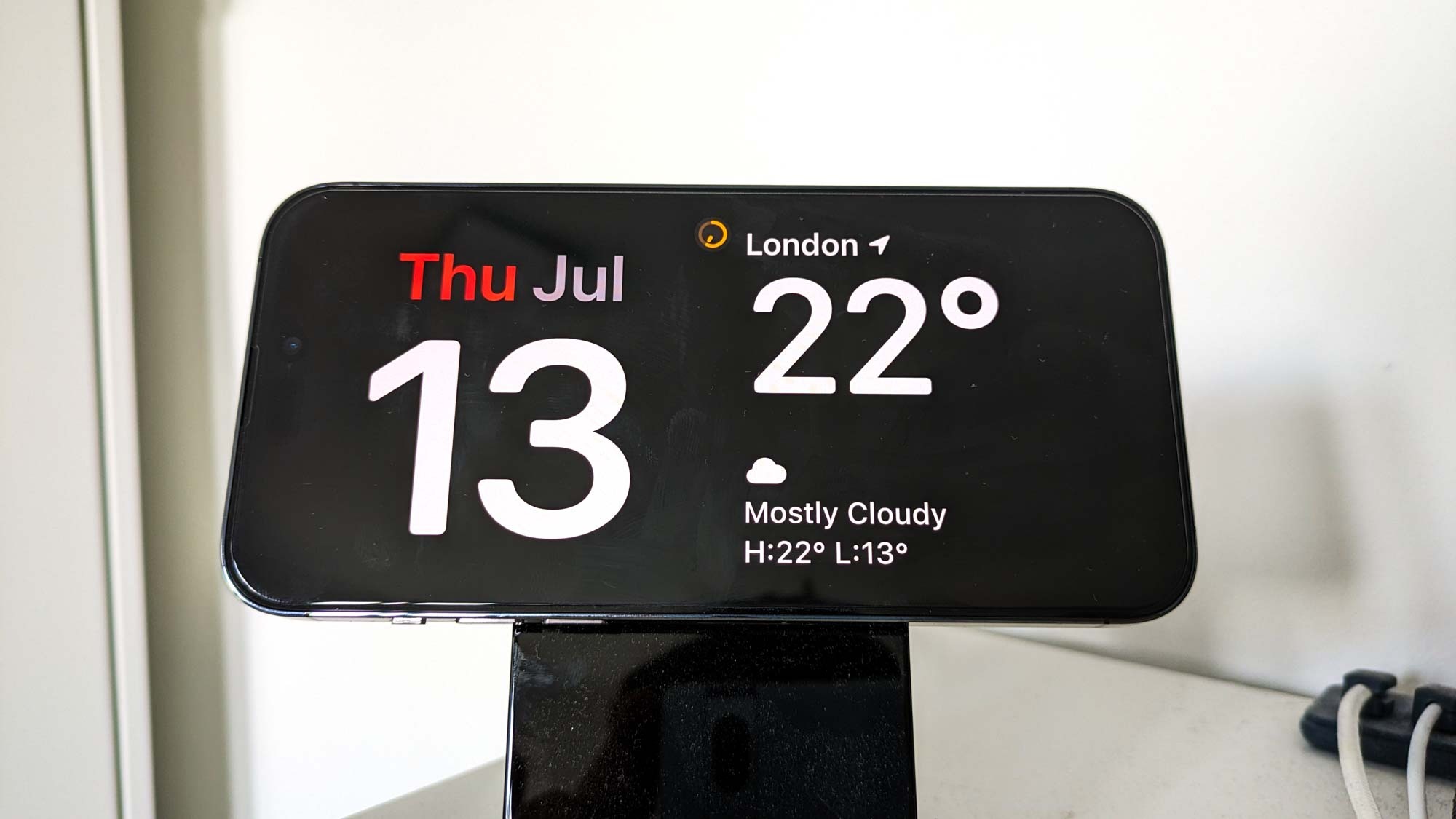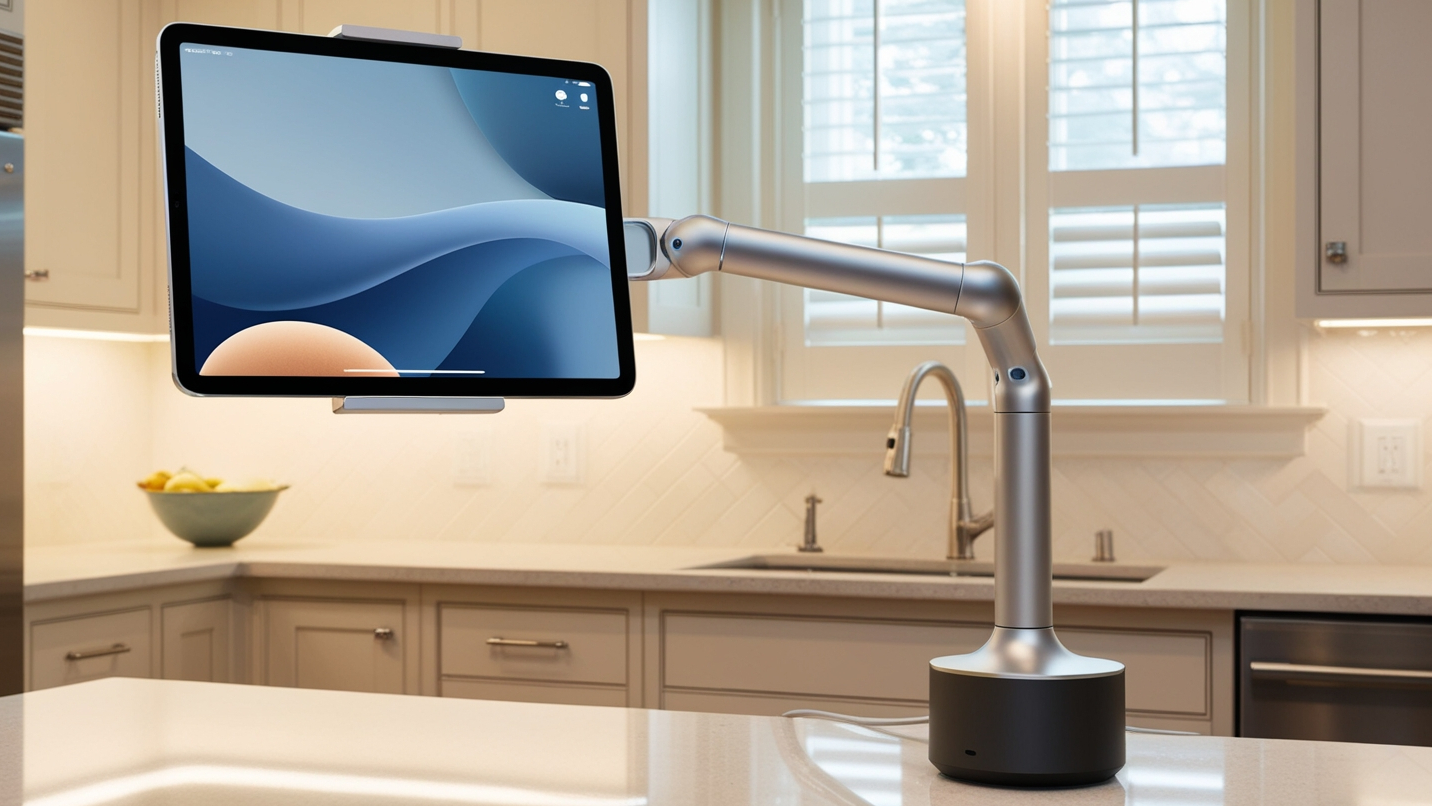
With over half of American smartphone owners using an iPhone, Apple has been a mobile success story for years now. In the smart home space, however, it’s a different story. The HomePod family of smart speakers — as good as they are — struggle to compete with Amazon’s all-conquering Alexa-powered Echo devices.
But according to Bloomberg’s Mark Gurman, Apple has plans to seriously compete in the space “over the next two years” with “screens and software throughout the house in a way that creates an end-to-end experience.”
In his latest ‘Power On’ newsletter, Gurman highlights two devices specifically. The first is a smart display, and something to rival Amazon’s Echo Show and Google’s Nest Hub. Gurman describes it as an “affordable iPad-like screen”, priced so that consumers may feel like placing a number around the house. It will be used for streaming Apple TV Plus, making FaceTime calls, web surfing and accessing planning apps like Calendar and Notes.
It’s worth remembering that this isn’t the first time such a device has been raised, though it does appear to be distinct from rumors of old iPads being converted into smart screens via a special dock, mooted by Gurman in 2022.
While the piece doesn’t mention what this “affordable” price might be, Gurman does give an indication as to what Apple might be set to charge for something from the luxury end of the market: a “robotic tabletop device”, which he claims could sell for “perhaps around $1,000”.
This would also prominently feature a screen, but here it would be “positioned atop a swivelling robotic limb”. Unlike the more day-to-day productivity and entertainment provided by the smart screens, this tabletop device would “focus on home security monitoring, advanced videoconferencing and media playback with high-quality audio”.

Artificial Intelligence would apparently be at the heart of the device. Gurman writes that it will use AI to intuit its surroundings, who’s looking at the screen, what they’re doing and who’s speaking. While Apple claims that the iPhone 16 is the first device built from the ground up for Apple Intelligence, Gurman thinks this robotic device has a far more convincing claim for that particular accolade as a result.
These devices would join the HomePod and Apple TV as devices for the home, but there’s more to Apple’s strategy than just the products themselves. AI is part of this — not just the spatial detection features mentioned above, but by using Apple Intelligence to “offer home automation on steroids, as well as precise control of applications, devices and media.”
Software will also be a vital part of the fight ahead. To that end, Apple is reportedly “building a new Home Ecosystem team” featuring some engineers left directionless after the Apple Car project was shuttered. The software plan includes plans for homeOS, which will apparently be built on the tvOS software which powers Apple TV (itself based on iOS).
Beyond that, Gurman believes that Apple’s assistance in creating the Matter smart home standard will help break a market which doesn’t sit comfortably with the closed ecosystems the company has historically preferred.
While Apple is undoubtedly behind Amazon when it comes to smart home market share, Gurman believes the race is far from over, with innovation stalling across the industry. “Right now, nobody has truly mastered the smart home market,” he concludes. “But at some point, someone will. If the right pieces fall into place, it could — and should — be Apple itself.”







